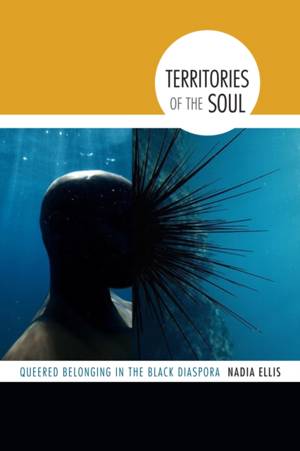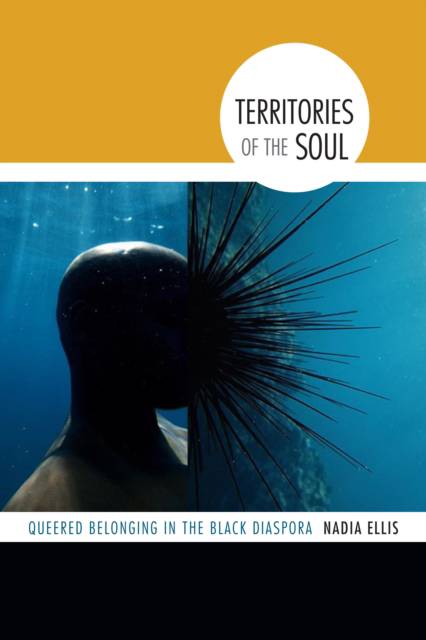
Je cadeautjes zeker op tijd in huis hebben voor de feestdagen? Kom langs in onze winkels en vind het perfecte geschenk!
- Afhalen na 1 uur in een winkel met voorraad
- Gratis thuislevering in België vanaf € 30
- Ruim aanbod met 7 miljoen producten
Je cadeautjes zeker op tijd in huis hebben voor de feestdagen? Kom langs in onze winkels en vind het perfecte geschenk!
- Afhalen na 1 uur in een winkel met voorraad
- Gratis thuislevering in België vanaf € 30
- Ruim aanbod met 7 miljoen producten
Zoeken
€ 53,45
+ 106 punten
Uitvoering
Omschrijving
Nadia Ellis attends to African diasporic belonging as it comes into being through black expressive culture. Living in the diaspora, Ellis asserts, means existing between claims to land and imaginative flights unmoored from the earth--that is, to live within the territories of the soul. Drawing on the work of Jose Muñoz, Ellis connects queerness' utopian potential with diasporic aesthetics. Occupying the territory of the soul, being neither here nor there, creates in diasporic subjects feelings of loss, desire, and a sensation of a pull from elsewhere. Ellis locates these phenomena in the works of C.L.R. James, the testy encounter between George Lamming and James Baldwin at the 1956 Congress of Negro Artists and Writers in Paris, the elusiveness of the queer diasporic subject in Andrew Salkey's novel Escape to an Autumn Pavement, and the trope of spirit possession in Nathaniel Mackey's writing and Burning Spear's reggae. Ellis' use of queer and affect theory shows how geographies claim diasporic subjects in ways that nationalist or masculinist tropes can never fully capture. Diaspora, Ellis concludes, is best understood as a mode of feeling and belonging, one fundamentally shaped by the experience of loss.
Specificaties
Betrokkenen
- Auteur(s):
- Uitgeverij:
Inhoud
- Aantal bladzijden:
- 256
- Taal:
- Engels
Eigenschappen
- Productcode (EAN):
- 9780822359289
- Verschijningsdatum:
- 14/09/2015
- Uitvoering:
- Paperback
- Formaat:
- Trade paperback (VS)
- Afmetingen:
- 153 mm x 232 mm
- Gewicht:
- 353 g

Alleen bij Standaard Boekhandel
+ 106 punten op je klantenkaart van Standaard Boekhandel
Beoordelingen
We publiceren alleen reviews die voldoen aan de voorwaarden voor reviews. Bekijk onze voorwaarden voor reviews.









